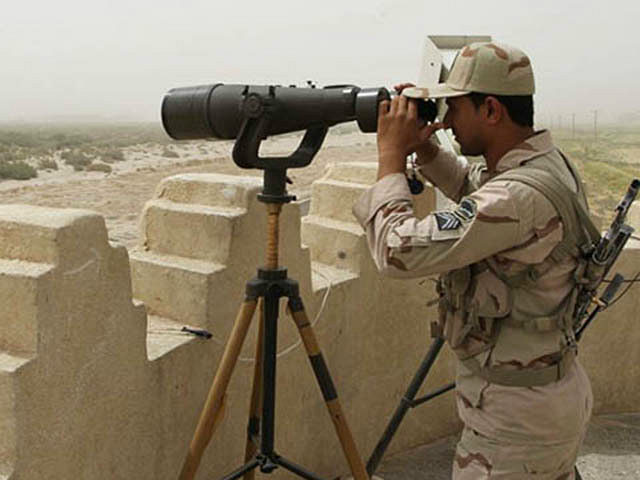Pakistani Chief of Naval Staff Adm. Zafar Mahmood Abbasi traveled to Tehran for a meeting on Tuesday with Iranian Rear Admiral Habibollah Sayyari to discuss increasing military cooperation between the two countries, including more joint air, ground, and naval military exercises.
Iran’s Tasnim news agency notes the Pakistani and Iranian navies have held several joint naval exercises in recent years:
A Pakistani flotilla comprising Navy ships Tippu Sultan and PNS Jurrat and a chopper and the Iranian Navy’s Jamaran Destroyer as well as a missile-launching frigate and a helicopter took part in joint naval exercises near southern Iranian waters in March 2017.
Rear Admiral Ali Fadavi, commander of the Islamic Revolutionary Guard Corps Navy, also met with Abbasi and said he hoped both of Iran’s navies would participate in joint exercises with Pakistan later this year. The IRGC is loyal to the theocracy, while Iran’s secular government commands a separate military.
Pakistan and Iran are also constructively discussing the implementation of a gas pipeline project that has been stalled for some time. Iran was on the verge of dragging the matter to an international arbitration court. Iranian officials have expressed enthusiasm for strengthening economic relations with Pakistan, possibly including a free trade agreement. The Iranians have insinuated that faster progress would have been made on this front if Pakistan was not concerned about the remaining U.S. sanctions on Iran.
Pakistan might be moving out of Saudi Arabia’s orbit and aligning itself with Iran, or at least threatening such a realignment to rattle cages in Riyadh. The rise of the Taliban in the Nineties caused a great deal of tension between Pakistan and Iran, along with violence against Pakistan’s Shiite population. The Taliban still causes tensions, but these days it is as likely to be Islamabad and Kabul accusing Tehran of covertly supporting the fundamentalists to destabilize Afghanistan and the Pakistani tribal regions.
India’s ongoing tensions with Pakistan are a factor as well. Previously, Indian engagement with Iran alienated Pakistan and caused it to feel encircled by antagonists, but now Pakistan might be competing with India for Iran’s favor. An important development in that complex relationship occurred in March when Iran invited Pakistan to participate in a trade project that would have bypassed Pakistan to give India access to Central Asia and Eastern Europe.

COMMENTS
Please let us know if you're having issues with commenting.